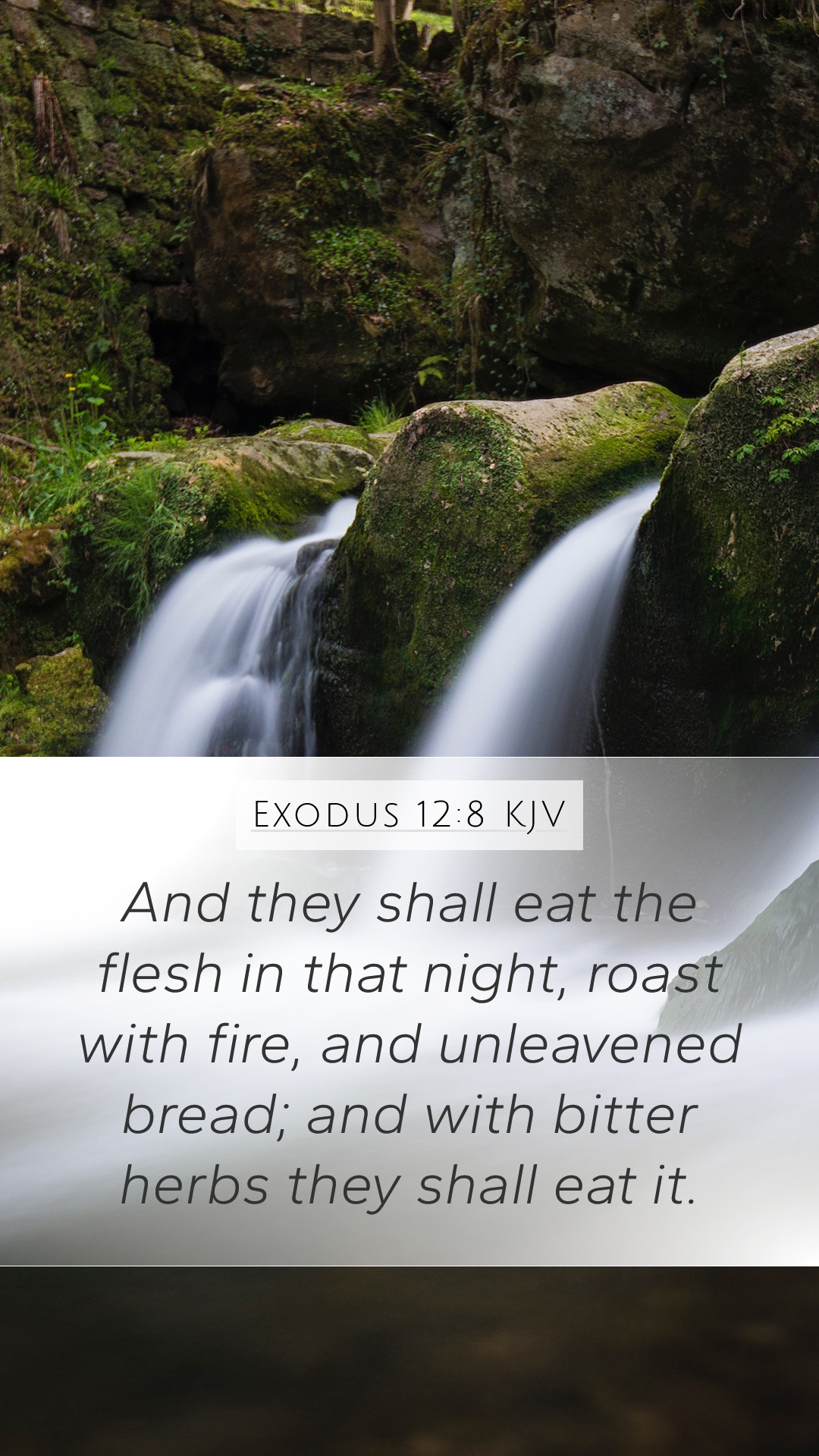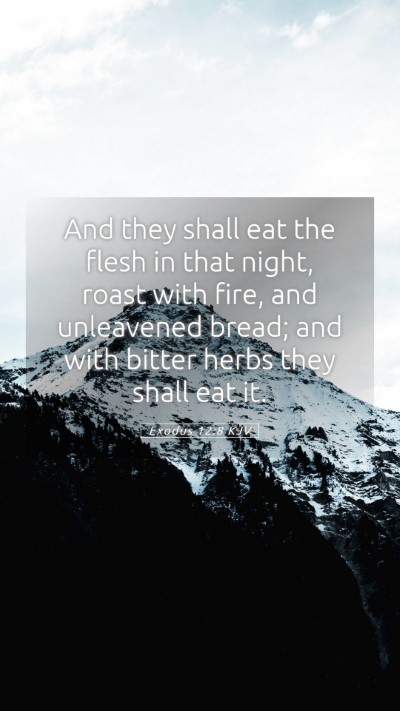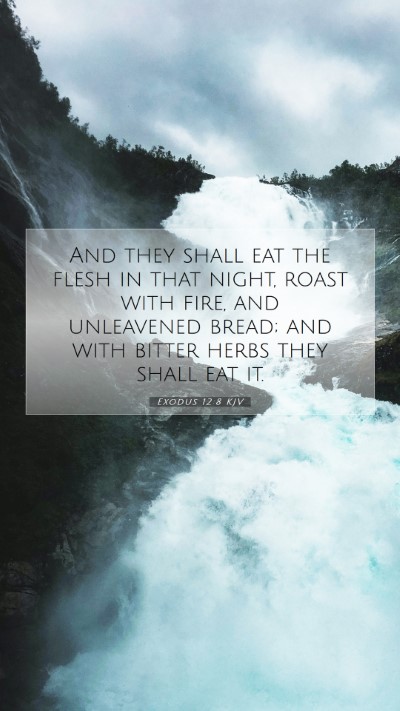Understanding Exodus 12:8: A Comprehensive Bible Verse Commentary
Exodus 12:8 states, "They shall eat the flesh that night, roasted on the fire; with unleavened bread and bitter herbs they shall eat it." This passage comes from the context of the Passover, a significant event in the history of Israel, marking their deliverance from Egyptian bondage.
The process of interpreting this verse requires careful analysis and an understanding of its historical and theological implications. Insights from public domain commentaries such as those by Matthew Henry, Albert Barnes, and Adam Clarke provide a deep dive into the meanings and significances embedded in this text.
Contextual Background
The Book of Exodus narrates the story of the Israelites' liberation from slavery in Egypt. Chapter 12 details God's instructions for the Passover, a pivotal moment that would lead to their Exodus. Understanding this verse involves recognizing its placement within the larger narrative and its role in the Israelites' redemption.
Verse Analysis
1. The Action of Eating
-
The command to eat the flesh of the lamb symbolizes participation in the covenant God is making with His people. Matthew Henry emphasizes that this act of eating is a communal experience that unifies the Israelites as they prepare for their deliverance.
-
Albert Barnes reflects on the importance of “bitter herbs,” interpreting them as a reminder of the bitterness of slavery and the suffering endured in Egypt. This significance cultivates a deeper understanding of the sorrow intertwined with their joyous deliverance.
2. The Symbols of Unleavened Bread
-
Adam Clarke notes the significance of unleavened bread in this feast, symbolizing purity and haste. The absence of leaven is a reminder of the quick departure that awaited them; they would leave no room for the fermentation, which can symbolize sin and corruption.
-
In a broader context, unleavened bread becomes a type of Christ, representing His sinless nature as the ultimate Passover Lamb. This typological interpretation is foundational for New Testament theology.
Theological Implications
This verse is not merely about dietary instructions. It encompasses profound theological themes, including:
- Redemption: The Passover lamb's sacrifice signifies the atonement that foreshadows Christ's ultimate sacrifice for humanity.
- Obedience: The detailed instructions highlight the importance of following God's commandments faithfully as a form of worship and recognition of His sovereignty.
- Community: The act of eating together underlines the importance of communal identity and shared faith among the Israelites.
Applying Exodus 12:8 to Daily Life
Understanding Scripture often involves applying its lessons to our lives. Exodus 12:8 can teach us:
- To remember our past and the struggles that shaped our faith.
- To embrace purity in our lives, letting go of the 'leaven' that may corrupt our spiritual journey.
- To find unity in community and the strength that comes from shared experiences and worship.
Cross References
This verse connects with multiple biblical texts that enhance its meaning:
- 1 Corinthians 5:7-8: Discusses the metaphor of leaven in relation to sin and the celebration of the Passover with sincerity and truth.
- Hebrews 11:28: References the faith demonstrated by the Israelites in keeping the Passover and the significance of the blood of the lamb.
- John 1:29: John the Baptist identifies Jesus as “the Lamb of God,” drawing a direct line from the Passover to Christ’s sacrificial role for humanity.
Conclusion
Exodus 12:8 encapsulates essential aspects of faith, communal worship, and the faithful response to God's commands. Through biblical exegesis, we gain insights that deepen our understanding of God’s redemptive plan and His call for His people to remember their identity and history.
For those involved in Bible study groups or online Bible study, this passage serves as a rich source of Bible study insights, illustrating foundational truths that guide believers in their worship and daily living.


